Alive Blog
The dangerous effects of chronic stress on the body
Understanding its impact on your health
In today’s fast-paced world, stress has become an all-too-familiar companion for many people. While stress is a natural response to challenging situations, prolonged exposure to stress can have serious consequences for both our physical and mental well-being. As a chiropractic clinic dedicated to holistic health, we believe it is essential to shed light on chronic stress and its effects on the body. In this blog post, we will explore what chronic stress is, its impact on health, and how chiropractic care can help manage and alleviate its effects.
What is Chronic Stress?
Stress is the body’s response to perceived threats or demands, triggering a cascade of physiological and psychological reactions. It is a normal part of life and can even be beneficial in certain situations. However, when stress becomes ongoing and persistent, it is referred to as chronic stress.
Unlike acute stress, which occurs in response to immediate challenges and subsides once the situation resolves, chronic stress persists over an extended period. Common sources of chronic stress include demanding work environments, financial difficulties, relationship problems, and health concerns. Additionally, lifestyle factors such as poor sleep, sedentary habits, and an unhealthy diet can contribute to chronic stress.
The impact of chronic stress on health
Chronic stress affects nearly every system in the body, contributing to various physical and mental health problems. Here are some of the ways chronic stress can impact your well-being:
1- Musculoskeletal Issues: Prolonged stress can lead to muscle tension, headaches, migraines, and even exacerbate existing musculoskeletal conditions. It can cause tightness in the neck, shoulders, and back, leading to discomfort and reduced mobility.
2- Digestive Disorders: Stress can disrupt the digestive system, leading to issues such as irritable bowel syndrome (IBS), acid reflux, and stomach ulcers. It can also affect eating habits, leading to overeating or undereating, both of which have their own health consequences.
3- Weakened Immune System: Chronic stress weakens the immune system, making you more susceptible to infections, colds, and other illnesses. It can also prolong recovery time from illness or injury.
4- Cardiovascular Problems: Stress triggers the release of stress hormones, which can increase blood pressure and heart rate. Over time, this can contribute to the development of hypertension, heart disease, and other cardiovascular problems.
5- Mental Health Disorders: Chronic stress is closely linked to mental health issues, including anxiety disorders, depression, and burnout. It can affect your mood, concentration, and overall cognitive function.

Managing chronic stress with chiropractic care
Chiropractic care offers a holistic approach to managing chronic stress and its effects on the body. By focusing on the nervous system, chiropractors can help restore balance and alleviate the physical manifestations of stress. Here are some ways chiropractic care can be beneficial:
Spinal Adjustments: Misalignments in the spine, known as subluxations, can disrupt the nervous system’s functioning. Chiropractic adjustments correct these misalignments, promoting proper nerve flow and reducing tension in the body.
Relaxation Techniques: Chiropractors often incorporate relaxation techniques such as deep breathing exercises, stretching, and therapeutic massage into their treatment plans. These practices help reduce muscle tension and promote overall relaxation.
Lifestyle Recommendations: Chiropractors can provide guidance on healthy lifestyle habits that can support stress management. This may include suggestions for exercise, nutrition, sleep hygiene, and stress reduction techniques.
Emotional Support: Chiropractors often provide a compassionate and supportive environment where patients can discuss their stressors and receive guidance on stress management techniques. They can offer valuable advice on coping mechanisms and stress reduction strategies.
Pairing chiropractic with massage is an optimal strategy for most of our clients.
3 Types of stressors
In our modern-day life, we face an array of stressors that can significantly impact our well-being. Three main stressors that stand out are emotional stressors, chemical stressors, and physical stressors. Each of these stressors can affect our mental and physical health, highlighting the importance of managing them effectively.
Emotional Stressors
Emotional stressors encompass a wide range of factors related to our thoughts, feelings, and relationships. In this fast-paced world, we often experience stress from work pressure, financial worries, family conflicts, and interpersonal relationships. The constant juggling of responsibilities and the need to meet societal expectations can lead to emotional exhaustion and burnout. Moreover, social media and the digital age have brought about new stressors, such as the fear of missing out (FOMO) and the pressure to maintain an idealized online image. Addressing emotional stressors requires cultivating healthy coping mechanisms, practicing mindfulness, seeking support from loved ones, and setting realistic boundaries to protect our mental well-being.
Chemical Stressors
The modern environment bombards us with chemical stressors that impact our health. Our diets often include processed and sugary foods, leading to fluctuations in blood sugar levels and potential weight gain. Harmful substances like alcohol, tobacco, and recreational drugs can also contribute to chemical stress on our bodies. Additionally, exposure to pollutants and toxins in the air we breathe, the water we drink, and the products we use can have adverse effects on our health. Reducing chemical stressors involves adopting a balanced and nutritious diet, staying hydrated, avoiding harmful substances, and opting for natural and eco-friendly products whenever possible.
Physical Stressors
In our sedentary lifestyles, physical stressors are prevalent due to prolonged sitting, lack of exercise, and poor posture. Many jobs require long hours of desk work, leading to issues like back pain, stiffness, and decreased mobility. Physical inactivity can contribute to weight gain, muscle weakness, and an increased risk of chronic diseases. Moreover, insufficient sleep and irregular sleep patterns can further compound physical stress. To combat physical stressors, it is essential to incorporate regular physical activity into our routines, take breaks to move and stretch during extended periods of sitting, prioritize quality sleep, and practice relaxation techniques like yoga or meditation.
Addressing these three main stressors in modern life requires a holistic approach that emphasizes self-awareness, self-care, and self-compassion. By acknowledging the impact of emotional, chemical, and physical stressors, we can take proactive steps to manage and reduce their effects on our mental and physical well-being, leading to a healthier and more balanced lifestyle.
Chronic stress is a pervasive issue in today’s society, impacting our physical and mental well-being. As a chiropractic clinic focused on holistic health, we understand the far-reaching effects of chronic stress on the body. Through chiropractic care, we aim to address the underlying imbalances caused by stress and help you restore balance to your body and mind. If you’re seeking effective ways to manage chronic stress, we invite you to schedule a consultation with our experienced chiropractic team. Together, we can develop a personalized plan to support your well-being and help you lead a healthier, stress-free life.
Dr. Edoardo Elisei DC
Alive Chiropractic LTD
alivechiropractic.co.uk
1C Crown Gate Square
POUNDBURY
05/07/2023






















